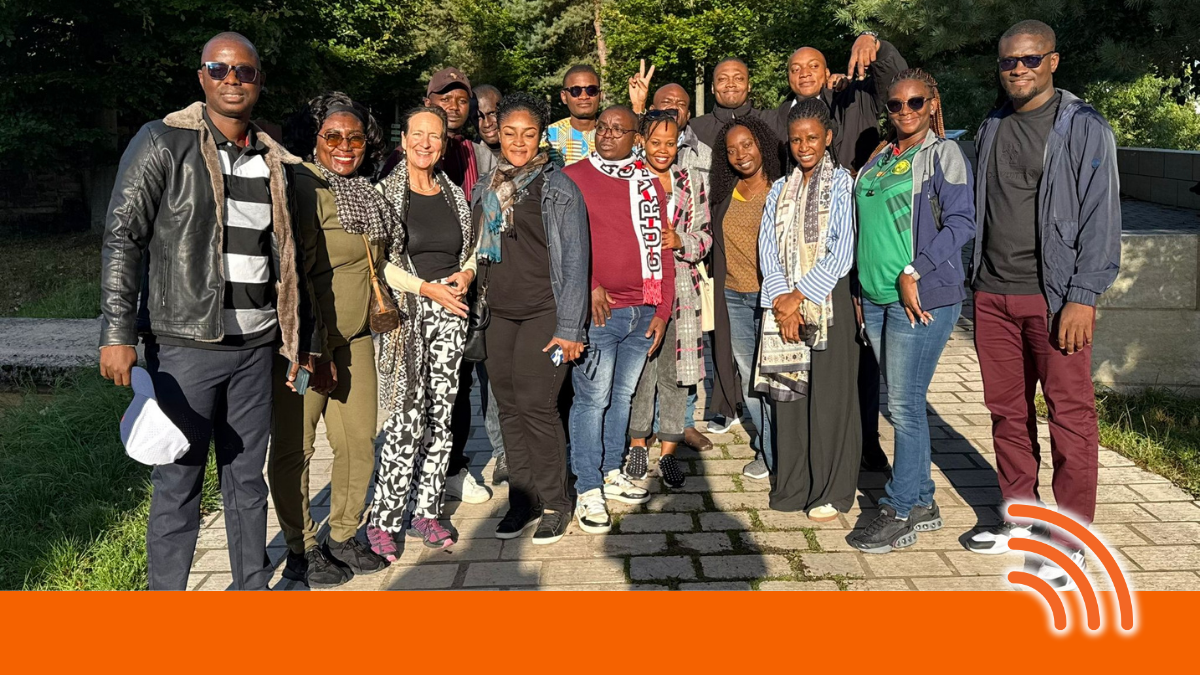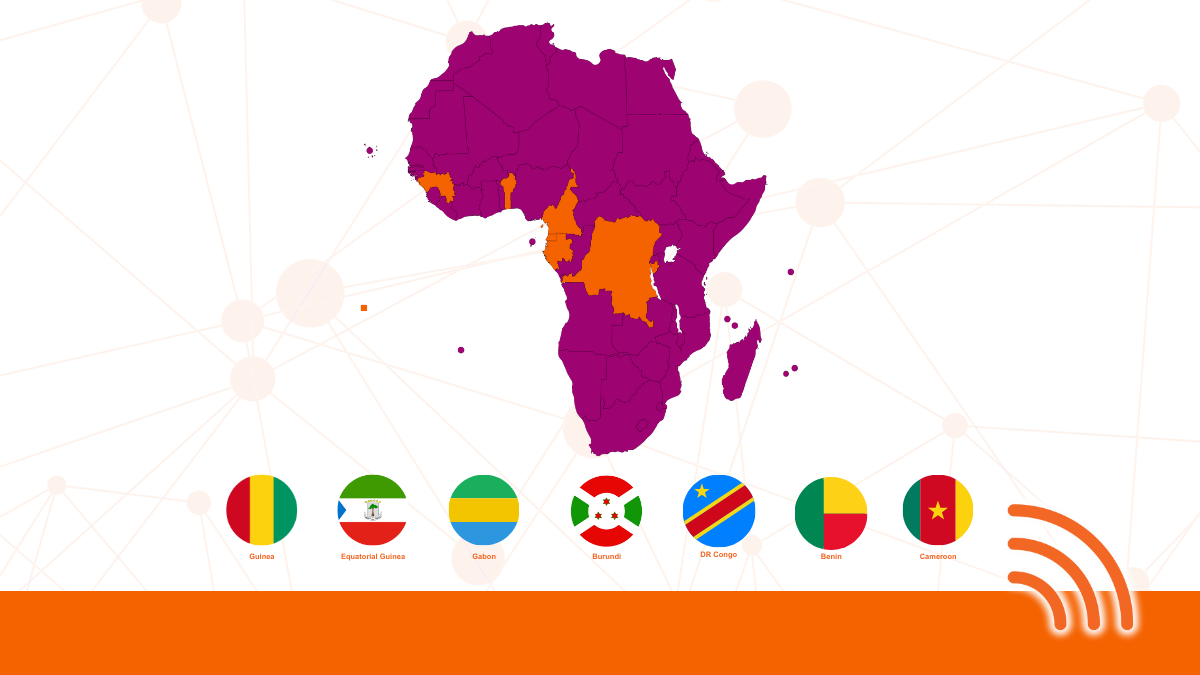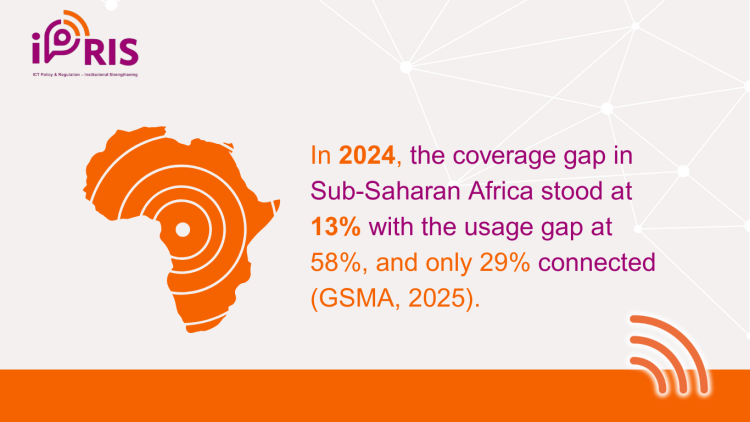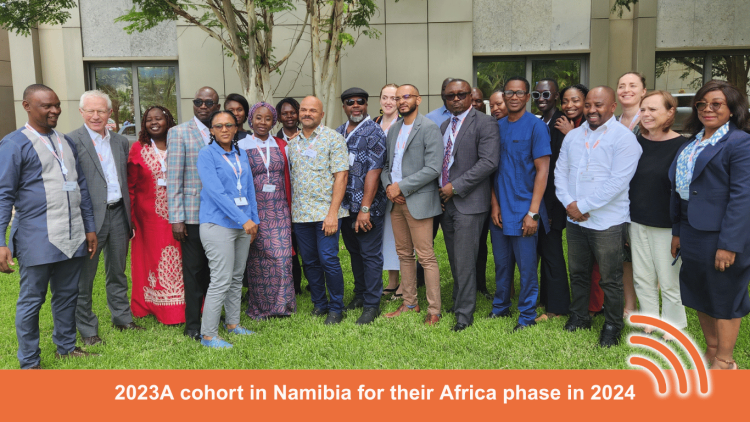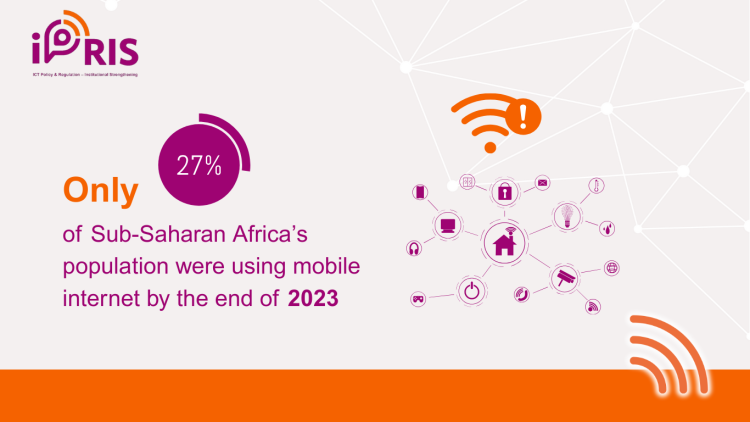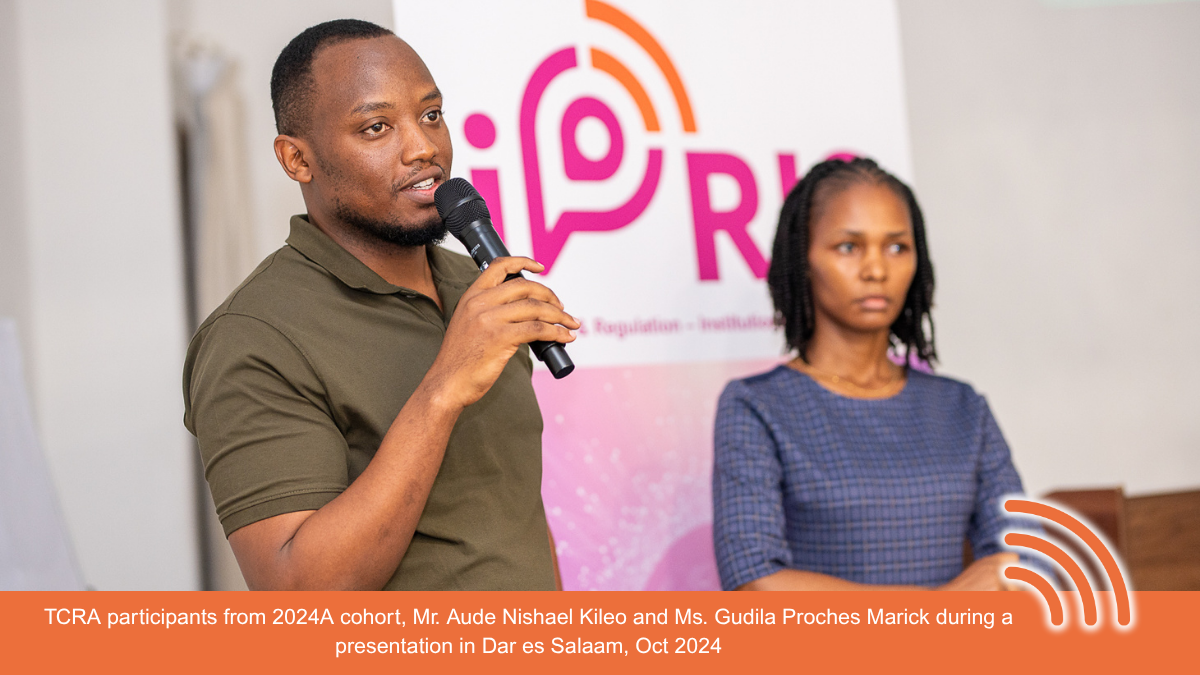Bridging cultures and continents to build a more connected digital future
Luxembourg — 14th September
This September, Luxembourg stands at the center of digital cooperation, bringing together Francophone African and European telecom regulators for two and a half weeks of shared learning, strategic dialogue, and practical solutions to today’s connectivity challenges.
In an age where digital connectivity is the backbone of economic growth and social inclusion, bridging digital divides has never been more urgent. ITU estimates that approximately 5.5 billion people – or 68 per cent of the world’s population – are using the Internet in 2024. This represents an increase from only 53 per cent in 2019, with 1.3 billion people estimated to have come online during that period. However, this leaves 2.6 billion people still offline.
About iPRIS
iPRIS is coordinated and implemented by SPIDER, in strategic and technical partnership with the Swedish Post and Telecom Authority (PTS) and Institut luxembourgeois de régulation (Luxembourg Regulatory Institute [ILR]), as well as ARTAC, CRASA, EACO, and WATRA. It builds on the success of a similar programme implemented by SPIDER and PTS, which engaged 27 English-speaking African regulators between 2016 and 2022.
iPRIS is funded by the European Union, Sweden, and Luxembourg as part of the Team Europe Initiative “D4D for Digital Economy and Society in Sub-Saharan Africa” (Code: 001).
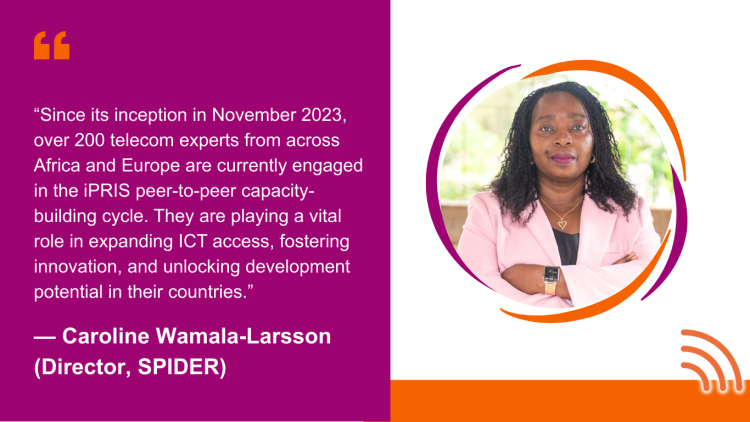
Peer to peer learning
This year’s Francophone cohort reflects the breadth and depth of regulatory experience across both continents. African National Regulatory Authorities (NRAs) participating include ARCEP Benin, ARCT Burundi, ART Cameroon, ARPTC Congo Kinshasa, ORTEL Equatorial Guinea, ARCEP Gabon, and ARPT Guinea. They are joined by Regional Regulatory Organisations (RROs) such as CRASA, WATRA, EACO, and ARTAC, alongside European peers including ARCEP France, BNetzA (Germany), IBPT (Belgium), and private-sector partner Deloitte.
The mix balances local realities with global perspectives, ensuring African regulators lead discussions while drawing on international expertise. Together, participants are charting a shared path towards stronger ICT regulation, fairer access, and a more connected future.
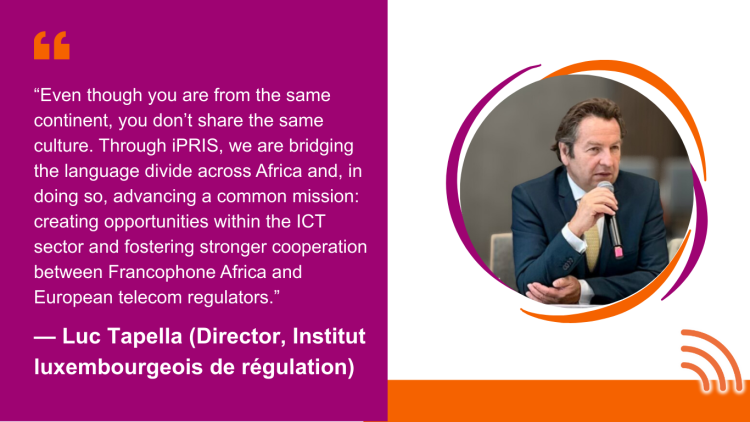
The 2025 peer to peer training round builds on the success of the 2024B Francophone cohort, which was the first French cohort from Sub-Saharan Africa (SSA) to participate in iPRIS. This new cohort will continue iPRIS’s commitment to strengthening institutional leadership in ICT regulation and advancing affordable, inclusive, and sustainable digital transformation across Africa.
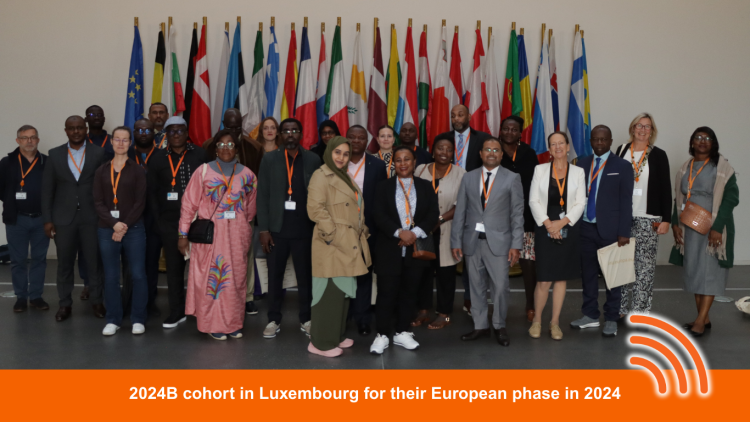
Tackling the core challenges to unlock the global digital divide
The iPRIS programme zeroes in on urgent priorities that define digital inclusion in Africa today:
- Affordability: In 2024, the median price of an entry-level mobile broadband plan in Sub-Saharan Africa was the highest globally, well above the UN Broadband Commission’s affordability target of 2 per cent of income. Fixed broadband remains even less affordable (ITU, 2025).
- Gender gaps: Digital access still reflects stark inequalities. In 2024, 43 per cent of men in Africa were online compared to just 31 per cent of women (ITU, 2025).
- Emerging regulatory frontiers: From 5G rollout and satellite-to-device services to cross-border spectrum coordination, regulators must stay ahead of new technologies.
- Interoperability: Cross-border telecom operations depend on seamless connectivity between networks and devices, a critical enabler of regional integration.
- Data security: Safeguarding the flow of data across borders is key to building trust, protecting consumers, and strengthening digital ecosystems.
Reflections from the telecom experts during week 1
These reflections underline the programme’s dual role: technical deep dive and cultural bridge-building.
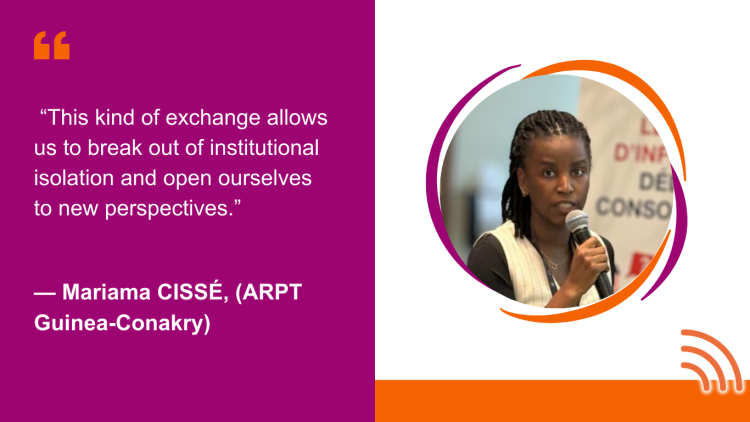
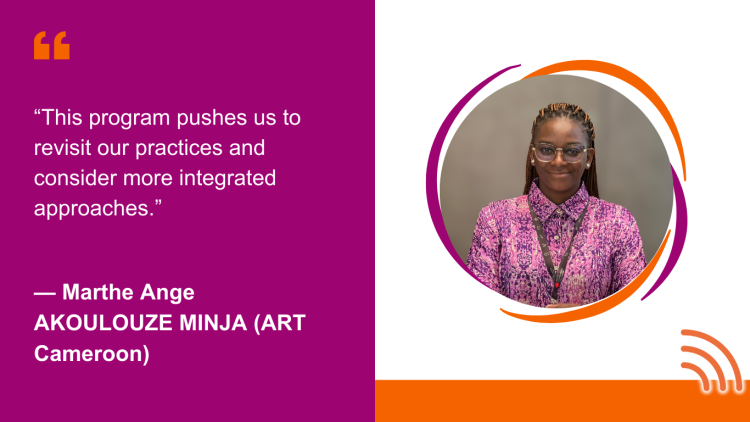
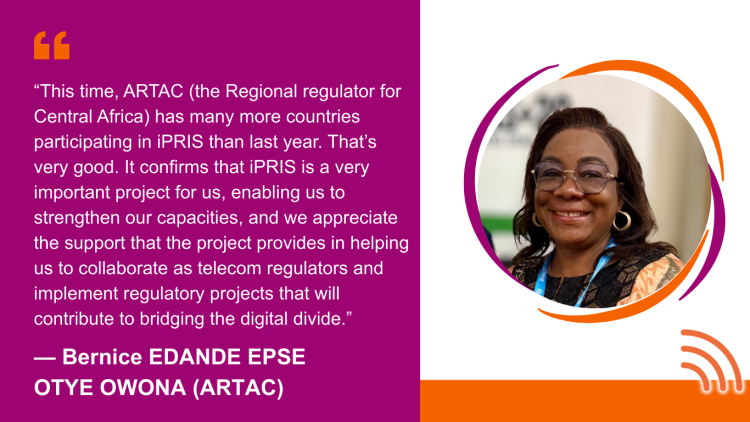
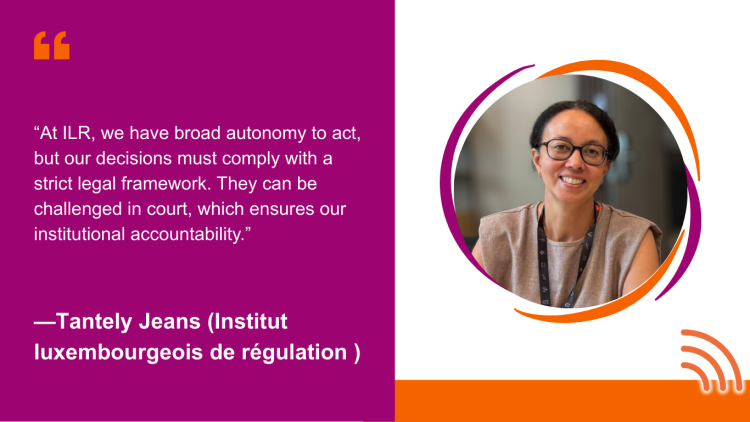
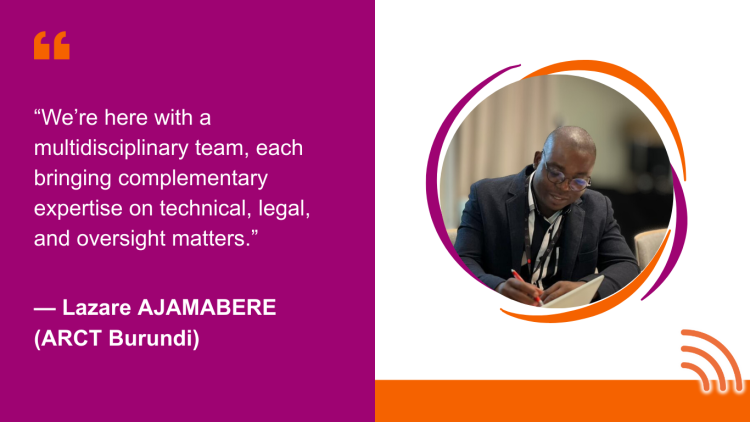
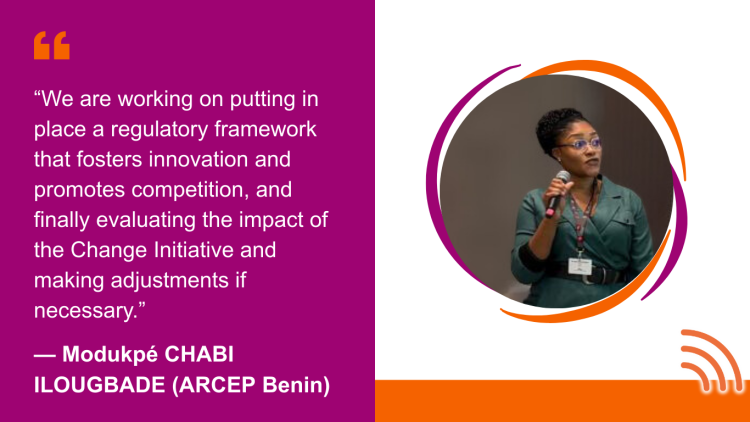
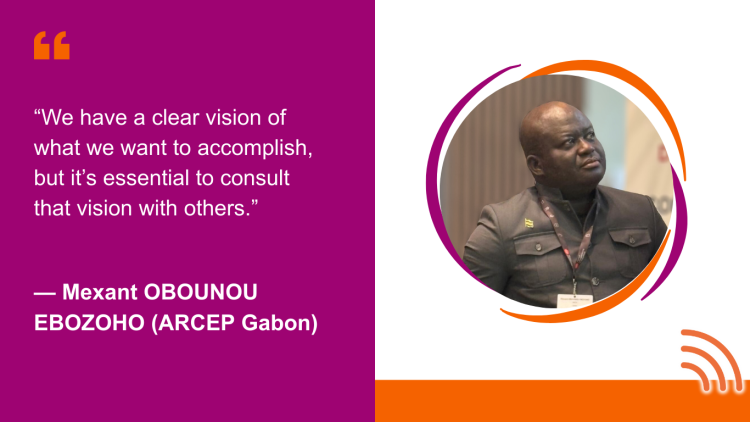
Local realities, shared solutions
Week 1 discussions were rooted in concrete national contexts. For example, in Equatorial Guinea, rural areas often rely on networks from neighbouring countries, with cross-border interference disrupting service quality. In Gabon, 90 per cent of the fibre market is controlled by a single operator, limiting competition and infrastructure sharing. Even when competition expands—as with the arrival of a third mobile operator in 2022—the market grew only 4 per cent, highlighting pressure on margins and the need for smarter regulation.
These examples illustrate why Change Initiatives (CIs) are central to iPRIS. Each telecom regulator during the 12-month training programme designs a CI aligned with their institutional priorities—whether infrastructure gaps, affordability barriers, or regulatory inefficiencies. Over the course of the 12-month session, CIs evolve from ideas into actionable project plans through two tracks: expert-led technical work (coordinated by ILR) and SPIDER-led coaching on project management.
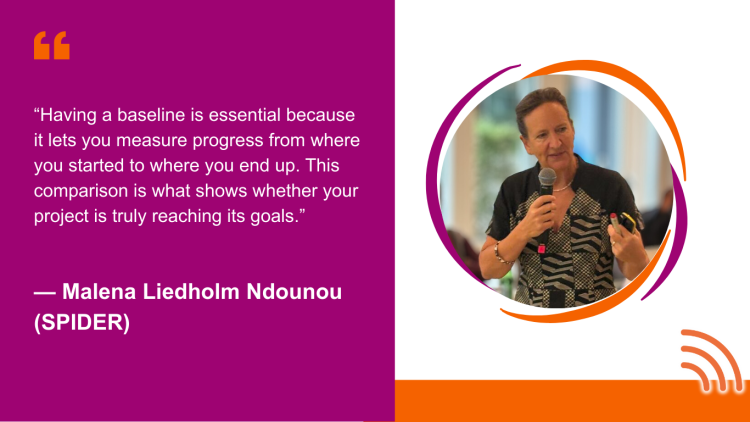
Spectrum: the invisible backbone
One highlight of the week was a deep dive into spectrum management, facilitated by Guy Mahowald, the invisible yet indispensable resource that powers everyday life. This conversation addressed several spectrum topics across the session. One highlight was discussions around the challenges of balancing global standards with local realities, including the difficulties African regulators face with imported equipment, the publication of approved equipment lists, and the broader context of differing regulatory approaches between Africa and Europe.
Spectrum enables everything from mobile calls, texts, and internet access to Wi-Fi, GPS, satellite internet, Bluetooth devices, and even wireless microphones. Globally, spectrum governance is coordinated by the International Telecommunication Union (ITU) through its World Radiocommunication Conference. Regional bodies such as CEPT (Europe) and ATU (Africa) help align strategies, while national regulators like Luxembourg’s ILR develop detailed frequency plans and negotiate cross-border agreements.
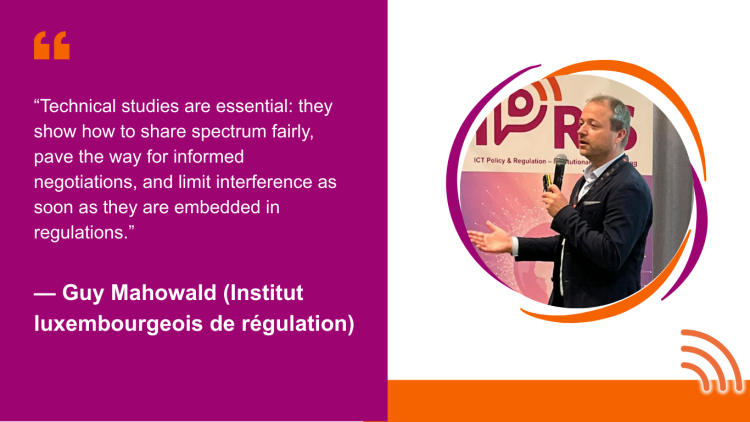
Building for impact
The iPRIS peer-to-peer learning journey is designed to be both practical and transformative.
Facilitating the project management session, Ms. Malena Liedholm Ndounou of SPIDER emphasised that the real value lies in integrating those planning tools into actual outputs.
"Clear objectives and the right indicators help regulators see what's working and what's not. That's how Change Initiatives can drive down costs, close gender gaps, improve user experience, and build a more inclusive digital ecosystem," she stated.
Click the video below to view some moments from the first week
Roadmap to 2030
Since inception, iPRIS has engaged 31 national telecom regulators in Sub-Saharan countries, including Kenya, Nigeria, Ghana, Namibia, South Africa, Tanzania, Uganda, Zambia, Eswatini, Central African Republic, Chad, Comoros, Congo-Brazaville, Mauritania, Senegal, Togo, Lesotho, Mauritius, Rwanda, The Gambia, South Sudan, Liberia, Zimbabwe, Sierra Leone, Benin, Burundi, Cameroon, Congo-Kinshasa, Equatorial Guinea, Gabon, and Guinea-Conakry. Regional Regulatory Organisations (RROs)—CRASA, WATRA|ARTAO, EACO, ARTAC—play a central role in shaping the digital ecosystem.
Between 2023 and 2028, iPRIS will engage national and regional telecom regulators in 43 countries across sub-Saharan Africa to drive social and economic prosperity using ICT. Telecom regulators are key to ensuring ICT access, competition, consumer protection, and innovation to unlock development potential.
Stay tuned for more updates on the remaining weeks of the peer-to-peer training sessions.
iPRIS is coordinated and implemented by SPIDER in strategic and technical partnership with the Swedish Post and Telecom Authority (PTS) and Institut luxembourgeois de régulation (ILR), as well as ARTAC, CRASA, EACO, and WATRA.
iPRIS is funded by the European Union, Sweden, and Luxembourg as part of the Team Europe Initiative “D4D for Digital Economy and Society in Sub-Saharan Africa” (Code: 001).


